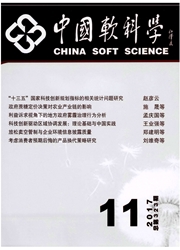

 中文摘要:
中文摘要:
中国经济由30多年的高速增长转向中高速增长的“新常态”,不同阶层、集团及群体之间的利益矛盾与冲突进一步加剧,制度变迁步伐明显加快,正在开启全面改革进程。而互联网的迅猛发展无疑放大了利益冲突的形式与内容,也扩大了利益冲突对既存制度的冲击,从而进一步提高了制度变迁的速率。基于上述背景,我们借助博弈论的分析工具,构建了互联网背景下利益冲突如何影响制度变迁的理论模型,增强了对中国制度变迁的解释能力,推进了制度变迁理论的发展,并给出了社会治理的政策建议。
 英文摘要:
英文摘要:
Chinese economy is transferring from high rapid growth to the middle rapid growth, which is called the "new normal". In this process, conflicts of interest of different sectors, groups and between groups further intensified, and institutional change quickened significantly. The rapid development of the Internet undoubtedly magnified the form and content of interest conflict, and expanded the impact of the existing system of interest conflict, thus further improved the rate of institution change. Based on the background, we made a literature review of different institution change theory, highlighting the significance role of interest conflict in institution change. We also use the analytical tools of game theory, and built the theoretical model of how does the interest conflict affect the institution change in China. In this way, we want enhance the ability of explain institution change, and promote the development of the theory of institution Change.
 同期刊论文项目
同期刊论文项目
 同项目期刊论文
同项目期刊论文
 期刊信息
期刊信息
